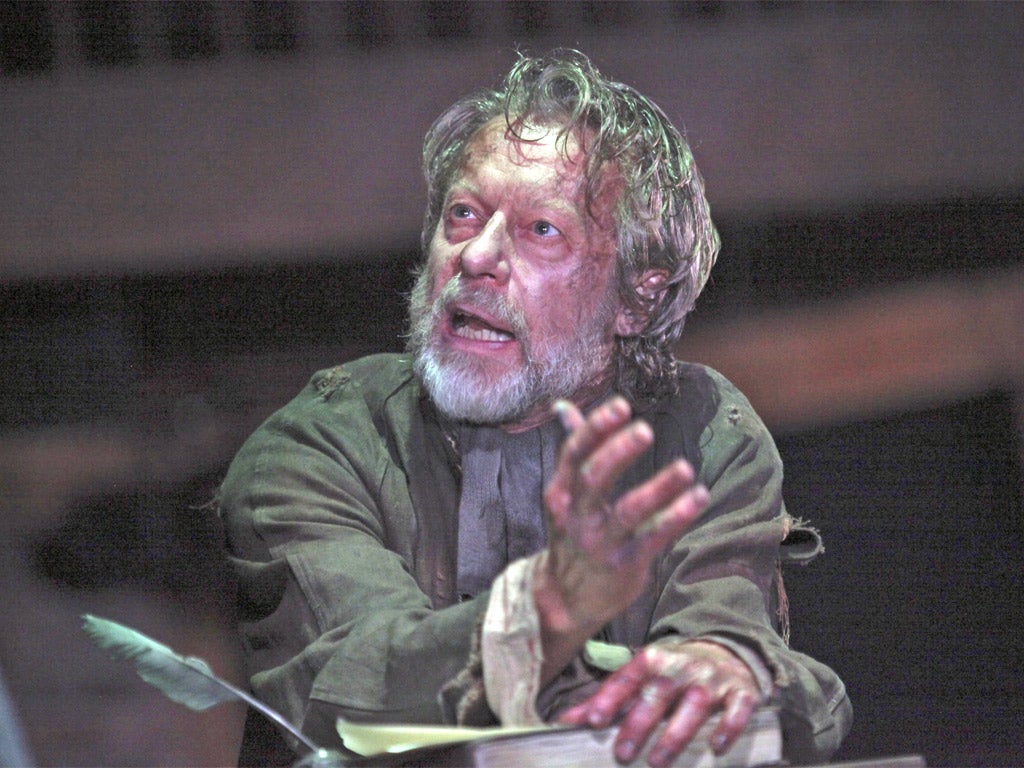Written on the Heart, Swan Theatre, Stratford-upon-Avon

Celebrating the 400th anniversary of the King James Bible has been all the rage in Theatreland, from the Globe's "Word of God" series to the Bush's all-day marathon Sixty-Six Books. David Edgar's new play, Written on the Heart, is the most bracing and radical attempt so far to construe this masterpiece not just as an object of aesthetic veneration or historical significance but as a document that, like all translations of the Bible, reflects the prejudices and preoccupations of its period. Premiered in Gregory Doran's powerfully involving and pungently acted production, the piece brings the Reformation and its ideological conflicts stingingly alive.
The proceedings begin in London in 1610 as a bunch of disputatious divines gather for a not-so-polite punch-up about disagreements in wording. Occasionally, listening to these choleric clerics argue the toss over "fold" as opposed to "flock" or "Thy faith hath healed me" as distinct from "Thy faith hath saved me", I was reminded of the military gentlemen in the Lord Chamberlain's Office in the days of stage censorship. The difference is that those earlier, seemingly pedantic verbal minutiae had momentous implications for an ecclesiastical establishment threatened both by the "tyranny" of Popery and by the "anarchy" of extreme Puritanism. These were literally burning issues.
The play throws the deliberations of 1610 into sharp relief by including that idealistic earlier translator who had to flee to the Continent because of his zeal to make the Bible available to seamstresses and ploughboys. Stephen Boxer's ragged, impassioned wraith of a William Tyndale, destined for the stake, is first seen in flashback in his Flanders prison cell.
He's later propelled forward to 1610 as the ghostly projection of the troubled conscience of Oliver Ford Davies's donnishly dry and anguished Bishop Lancelot Andrewes.
Their encounter underlines the debt the King James version owes to Tyndale (through smuggled texts). It also makes you ponder the danger of all faiths based on the revealed "word of God" as it pits the pragmatist who mislaid his ideals in favour of compromise against the zealot who imagined that corrupt non-Biblical paraphernalia such as purgatory and pilgrimages would disappear once a plain vernacular text dispensed with the need for self-interested priestly middle-men.
To 10 March (0844 800 1110)
Subscribe to Independent Premium to bookmark this article
Want to bookmark your favourite articles and stories to read or reference later? Start your Independent Premium subscription today.

Join our commenting forum
Join thought-provoking conversations, follow other Independent readers and see their replies